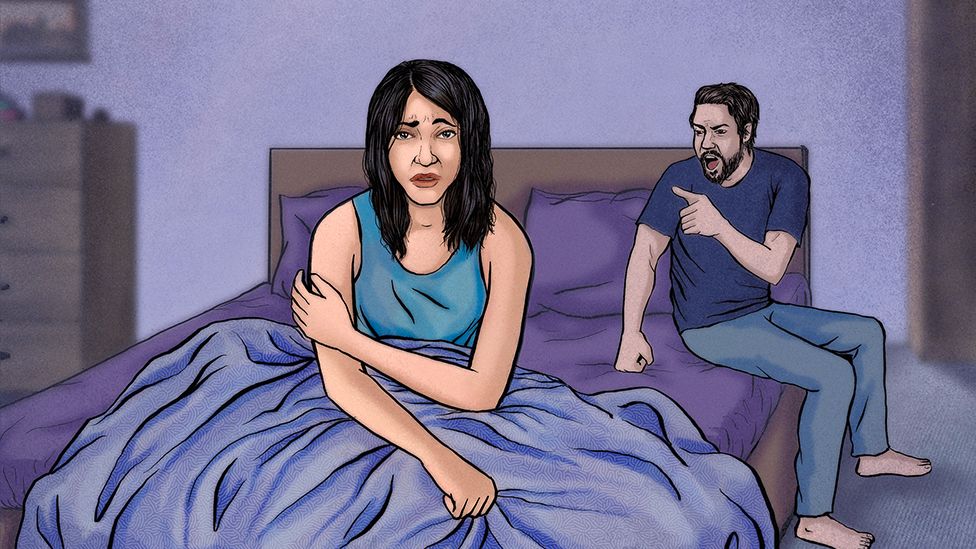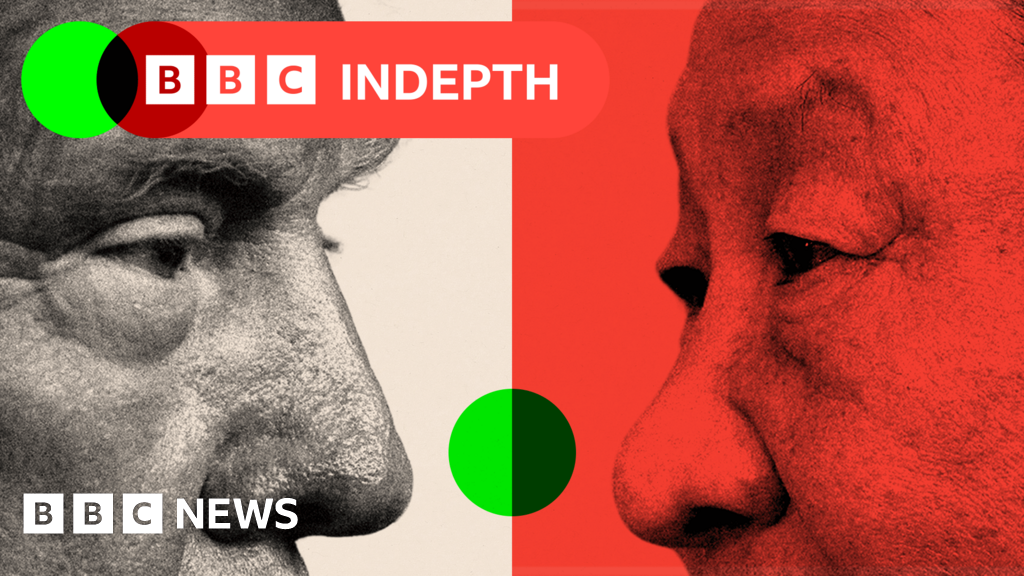ARTICLE AD BOX
By Firouzeh Akbarian & Sofia Bettiza
BBC World Service
 Image source, Manuella Bonomi
Image source, Manuella Bonomi
There's often acrimony and distress as couples fall out, but women are the ones who suffer most
In Iran, virginity before marriage is important for many girls and their families. Sometimes men demand a virginity certificate - a practice that the World Health Organization (WHO) deems to be against human rights. But in the past year, more and more people have been campaigning against it.
"You tricked me into marrying you because you're not a virgin. Nobody would marry you if they knew the truth."
This is what Maryam's husband said to her after they had sex for the first time.
She tried to reassure him that, even though she didn't bleed, she had never had intercourse before. But he didn't believe her, and asked her to get a virginity certificate.
This is not uncommon in Iran. After getting engaged, many women go to a doctor and get a test that proves they've never had sex.
However, according to the WHO, virginity testing has no scientific merit.
Maryam's certificate stated that her hymen type was "elastic". This means she might not bleed after penetrative sex.
"It hurt my pride. I didn't do anything wrong, but my husband kept insulting me," she said. "I couldn't take it anymore, so I took some pills and tried to kill myself."
Just in time, she was taken to a hospital and survived.
"I will never forget those dark days. I lost 20kg [3 stone] during that time."
Growing calls to end the practice
Maryam's story is the reality of many women in Iran. Being a virgin before marriage is still crucial for many girls and their families. It's a value that is deeply rooted in cultural conservatism.
But recently, things have started to change. Women and men around the country have been campaigning to put an end to virginity testing.
Last November, an online petition received almost 25,000 signatures within a single month. This was the first time virginity testing was being openly challenged by so many people in Iran.
"It's a violation of privacy, and it's humiliating," says Neda.
When she was a 17-year-old student in Tehran, she lost her virginity to her boyfriend.
"I panicked. I was terrified about what would happen if my family found out."
Image source, Manuella Bonomi
Image caption,Women are being forced to pay a heavy price by a conservative society
So, Neda decided to repair her hymen.
Technically, this procedure is not illegal - but it has dangerous social implications, so no hospital will agree to perform it.
So Neda found a private clinic that would do it in secret - at a heavy price.
"I spent all my savings. I sold my laptop, my mobile phone and my gold jewellery," she says.
She had to sign a document to take full responsibility in case something went wrong.
A midwife then proceeded with the procedure. It took about 40 minutes.
But Neda would need many weeks to recover.
"I was in a lot of pain. I couldn't move my legs," she recalls.
She hid the whole thing from her parents.
"I felt very lonely. But I think that the fear of them finding out helped me tolerate the pain."
In the end, the ordeal Neda endured was all for nothing.
A year later, she met someone who wanted to marry her. But when they had sex, she didn't bleed. The procedure had failed.
"My boyfriend accused me of trying to trick him into marriage. He said that I was a liar and he left me."
Pressure from the family
Despite the WHO denouncing virginity testing as unethical and lacking scientific merit, the practice is still carried out in several countries, including Indonesia, Iraq and Turkey.
The Iranian Medical Organisation maintain that they only carry out virginity testing in specific circumstances - such as court cases and rape accusations.
However, most requests for a virginity certification still come from couples who are planning to get married. So they turn to private clinics - often accompanied by their mothers.
A gynaecologist or a midwife will carry out a test and issue a certificate. This will include the woman's full name, her father's name, her national ID and sometimes her photo. It will describe the status of her hymen, and include the statement: "This girl appears to be a virgin."
Image source, Manuella Bonomi
Image caption,Most requests for virginity certificates still come from couples who are planning to get married
In more conservative families, the document will be signed by two witnesses - normally the mothers.
Dr Fariba has been issuing certificates for years. She admits it's a humiliating practice, but believes she's actually helping many women.
"They're under such pressure from their families. Sometimes I'll verbally lie for the couple. If they've slept together and want to get married, I'll say in front of their families that the woman is a virgin."
But for many men, marrying a virgin is still fundamental.
"If a girl loses her virginity before marriage, she cannot be trustworthy. She might leave her husband for another man," says Ali, a 34-year-old electrician from Shiraz.
He says he's had sex with 10 girls. "I couldn't resist," he says.
Ali accepts there's a double standard in Iranian society, but says he sees no reason to break away from tradition.
"Social norms accept that men have more freedom than women."
Ali's view is shared by many people, especially in more rural, conservative areas of Iran.
Despite mounting demonstrations against virginity testing, given this notion is so deeply rooted within Iranian culture, many believe a total ban on the practice by the government and lawmakers is unlikely anytime soon.
Hope in the future
Four years after attempting to take her own life and living with an abusive husband, Maryam was finally able to get a divorce through the courts.
She became single just a few weeks ago.
"It's going to be very hard to trust a man again," she says. "I can't see myself getting married in the near future."
Along with tens of thousands of other women, she, too, signed one of the growing number of online petitions to put an end to issuing virginity certificates.
Although she expects nothing to change soon, perhaps not even within her lifetime, she does believe one day women will gain more equality within her country.
"I'm sure it will happen one day. I hope in the future no girls will have to go through what I did."
All names of interviewees were changed to protect their identities.
If you are affected by any of the issues raised in this article please visit BBC Action Line for support.

 2 years ago
53
2 years ago
53








 English (US)
English (US)